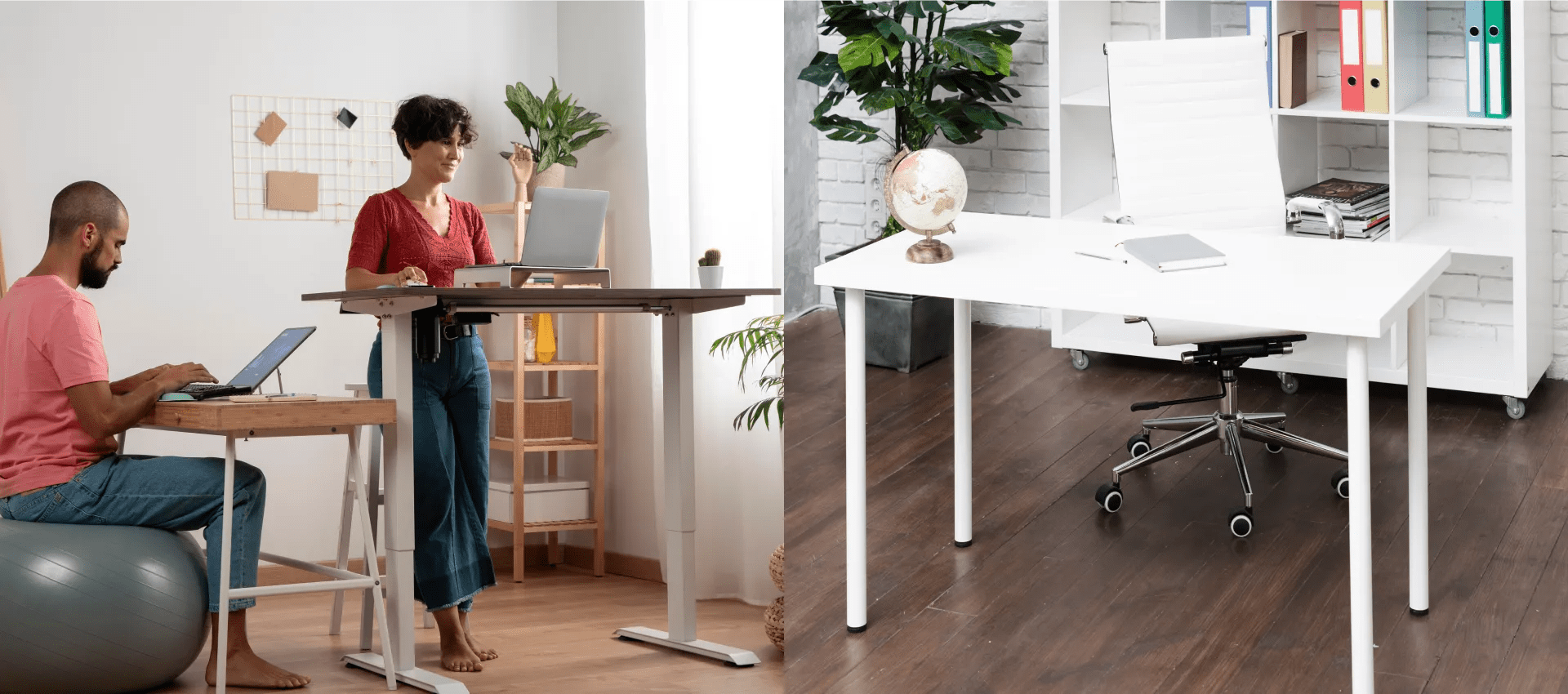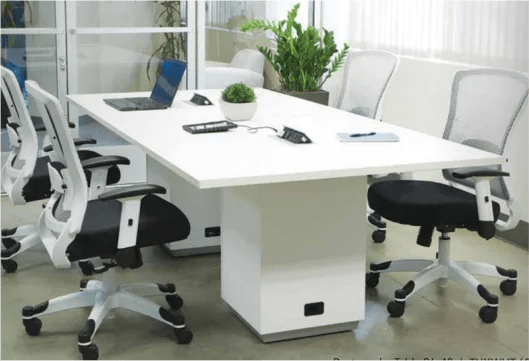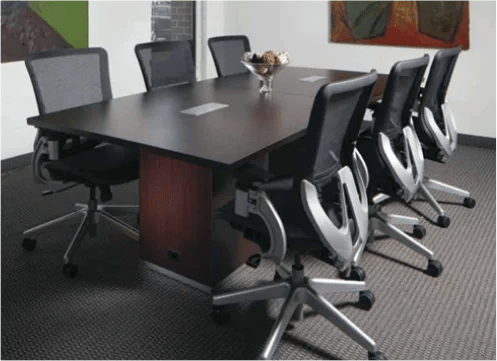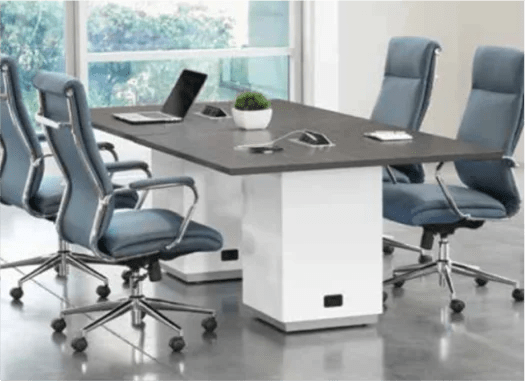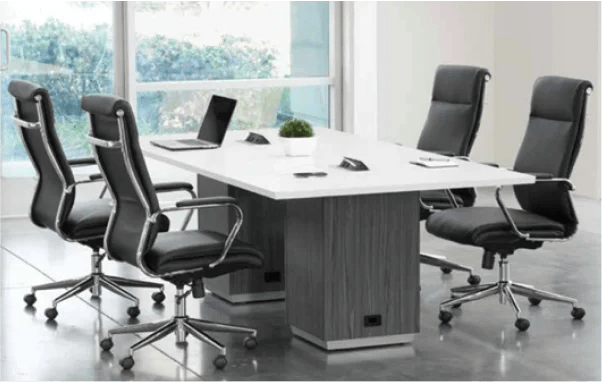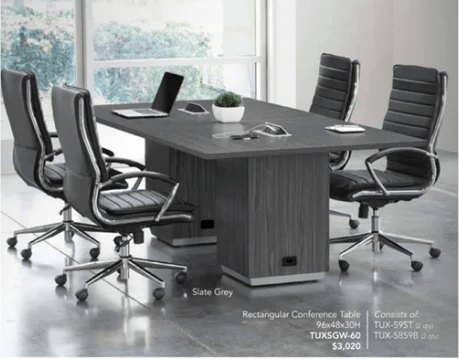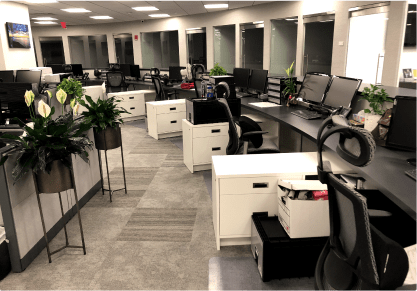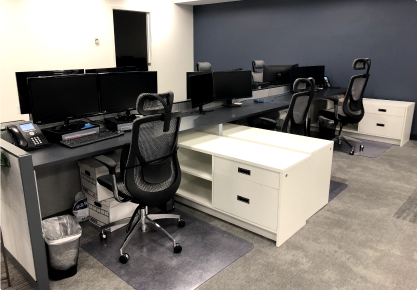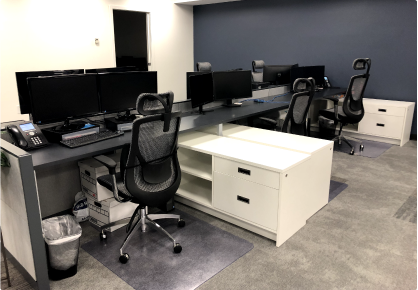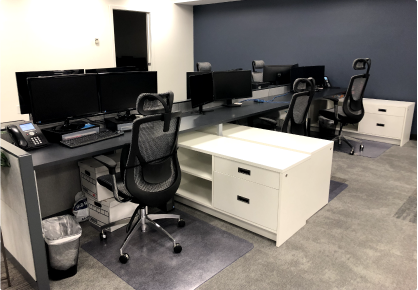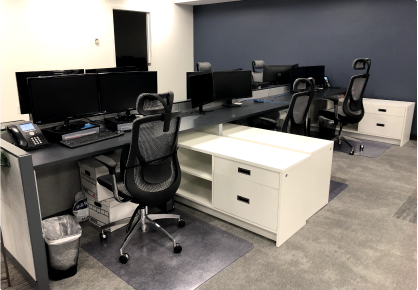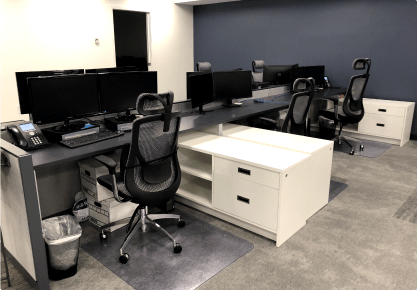- NY Phone: (212) 641-4300 |
- NJ Phone: (908) 300-5664
How to Improve Office Productivity With Smart Furniture Choices
How to Improve Office Productivity With Smart Furniture Choices

A well-designed and thoughtfully equipped office goes far beyond just looking good; it significantly impacts employee well-being, focus, and collaboration. Making smart furniture choices is a strategic investment in a more productive and engaged workforce.
Let’s explore how intelligent furniture can transform your office into a hub of efficiency and comfort.
Prioritize Ergonomics and Well-being
Investing in furniture that supports physical health is paramount for a productive team.
- Height-Adjustable Desks (Standing Desks): The negative health effects of prolonged sitting are well-documented, ranging from back pain to reduced energy levels. Height-adjustable desks empower employees to seamlessly transition between sitting and standing throughout the workday. This simple change can significantly improve focus, reduce discomfort, and boost overall energy levels.
- Posture-Tracking Chairs: Poor posture is a common culprit behind pain and fatigue in the workplace. Posture-tracking chairs utilize integrated sensors to monitor posture and provide real-time feedback. This encourages employees to maintain proper spinal alignment, leading to increased comfort, reduced health risks, and enhanced concentration.
Incorporate Intelligent Lighting Systems
The right lighting can dramatically impact mood and productivity.
- Poor lighting can lead to eye strain and fatigue, directly hindering focus and efficiency. Intelligent lighting systems address this by automatically adjusting brightness and color temperature based on the time of day and the specific task at hand. This promotes a more comfortable and visually appealing work environment, reducing headaches and improving overall efficiency.
Integrate Technology for Seamless Connectivity
Frustration with tangled cords and a lack of accessible power outlets can be a significant distraction. Smart furniture offers elegant solutions:
- Built-in Charging Stations: Integrated directly into desks and tables, these provide convenient and readily available power.
- Wireless Charging Pads: Offer a clutter-free and effortless way to charge devices.
- Conveniently Placed USB Ports: Ensure easy access for connecting and charging various devices.
These integrated features eliminate distractions, streamline workflows, and foster a more collaborative environment in shared workspaces.
Design Flexible and Collaborative Workspaces
Traditional, rigid office layouts can stifle creativity and limit interaction. Smart furniture offers the flexibility needed for modern work styles:
- Modular Desks and Mobile Workstations: Allow for easy reconfiguration of workspaces to accommodate different team sizes and project needs.
- Flexible Seating Arrangements: Encourage informal collaboration and provide comfortable alternatives to traditional desk setups.
These adaptable solutions foster creativity, boost collaboration, and ultimately enhance employee satisfaction.
Automate Repetitive Tasks
Leveraging the power of the Internet of Things (IoT), smart furniture can automate certain adjustments, enhancing both efficiency and ergonomics.
- Features like automated desk height and personalized lighting preferences can be set and adjusted with ease, saving valuable time and ensuring optimal comfort throughout the day. This automation streamlines workflows and allows employees to focus on more important tasks.
Focus on Comfort
Comfort is a fundamental aspect of a productive work environment.
- Uncomfortable furniture can quickly lead to fatigue and decreased focus. Investing in ergonomic and well-designed furniture minimizes physical discomfort, boosts energy levels, and contributes to higher job satisfaction.
Use Smart Furniture to Create Zones
A one-size-fits-all office layout often fails to cater to the diverse needs of different work activities. Smart furniture enables the creation of distinct, purpose-driven zones:
- Focus Zones: Designed with quiet workstations to facilitate deep concentration and individual work.
- Collaboration Zones: Equipped with modular desks and whiteboards to encourage teamwork and brainstorming.
- Relaxation Zones: Furnished with comfortable seating to provide employees with spaces to de-stress and recharge.
- Meeting Zones: Featuring smart tables and presentation tools for effective communication and collaboration.
Key Takeaways
- Smart furniture is an investment, not an expense. It delivers a tangible return by boosting productivity and potentially reducing health-related costs associated with poor ergonomics.
- Prioritizing employee well-being is crucial. Comfortable and ergonomic furniture directly contributes to increased engagement and improved performance.
- Customization is key. Every office has unique requirements, and the best smart furniture solutions are tailored to meet those specific needs.
- Measure the impact. Tracking key productivity metrics can help businesses quantify the positive effects of their smart furniture investments.
By strategically incorporating smart furniture, businesses can cultivate a more efficient, comfortable, and engaging workplace. Companies like Eltru specialize in providing sustainable office furniture solutions that not only enhance productivity but also prioritize employee well-being. With the right smart furniture in place, offices can truly support the way people work best, fostering a healthier and more dynamic work environment.
Contact Us For
OFFICE SPACE SOLUTIONS
and FF&E Services
Copyright © 2026 RJV Office Furnishing LLC



